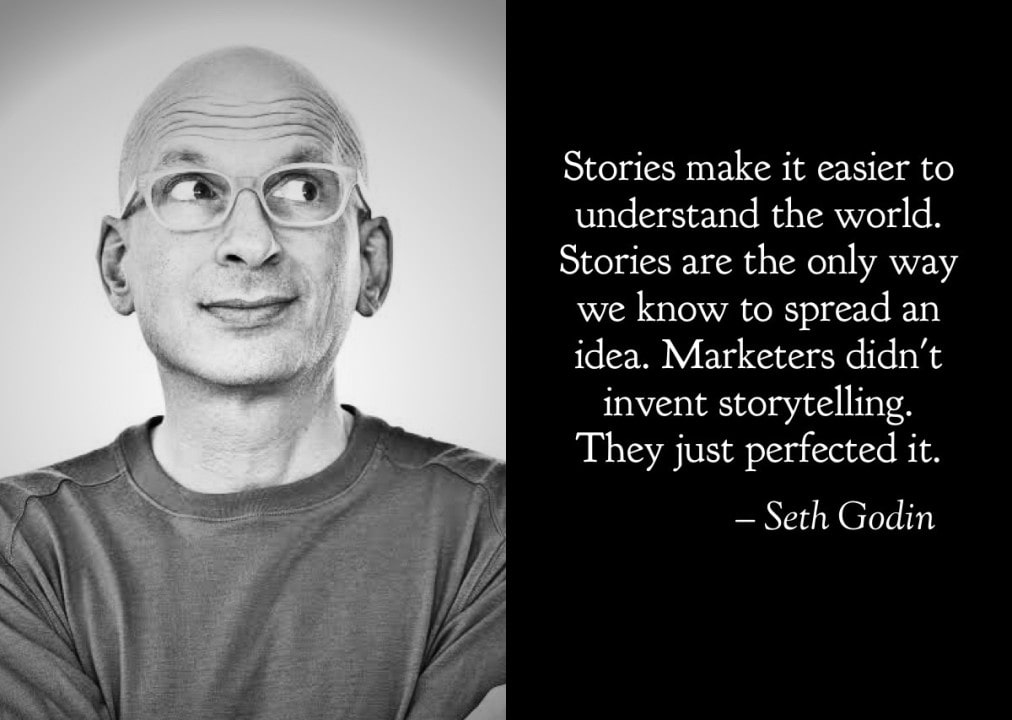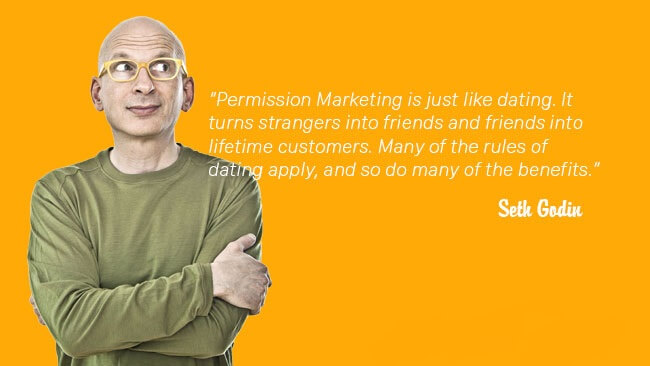Overview of Seth Godin
Background and Career
Seth Godin is not just a marketing expert; he’s a visionary who has transformed how businesses view marketing and branding. Seth Godin, with a background in computer science and philosophy, started his career at Yahoo! before founding Seth Godin Productions.
His pivotal moment came with the publication of his first book, “Permissive Marketing,” in 1999, which introduced innovative ideas that would soon change the marketing landscape. He wrote several bestsellers, including “Purple Cow” and “The Dip,” which are essential for entrepreneurs and marketers.
Godin’s career is marked by his keen understanding of consumer behavior and his ability to foresee market trends, leading him to excel in various sectors. His work is characterized by a unique blend of insights supported by practical, actionable advice—a formula that has garnered him a massive following.
Influence on Marketing Industry
Seth Godin’s influence on the marketing industry is profound and far-reaching. He’s a thought leader who encourages brands to think differently and embrace innovation. Here are some notable contributions:
- Permission Marketing: This concept revolutionized direct marketing, advocating for a shift from interruption to engagement.
- Emphasis on Storytelling: Godin emphasizes that telling a compelling story is crucial in capturing consumer attention.
- Advocacy for Authenticity: His insistence on being authentic has encouraged brands to foster genuine connections with their audiences.
These insights have influenced marketing strategies and inspired a new generation of marketers to question the norm. Godin’s talent for connecting with his audience has established him as a respected figure in marketing and entrepreneurship, demonstrating that powerful ideas can lead to success in any business.

Marketing Philosophy of Seth Godin
Permission Marketing
One of Seth Godin’s groundbreaking concepts is “Permission Marketing,” which he introduced in his first major book. This philosophy shifts marketing from a model of intrusion to one built on consent. Godin suggests that businesses should earn the right to communicate with customers through meaningful engagement instead of overwhelming them with unwanted ads.
Imagine signing up for an exciting newsletter that promises exclusive insights and offers! This is the essence of permission marketing—building trust and relationships instead of just making sales pitches. Here are some core principles:
- Engagement over Interruption: Create value that intrigues your audience and invites them to learn more.
- Personalization: Tailoring your messaging based on what your audience actually wants ensures higher engagement.
- Building a Community: Foster a sense of belonging among your audience, enhancing loyalty and retention.
Purple Cow Concept
Seth Godin’s “Purple Cow” concept is about standing out in a crowded marketplace. Just like a purple cow would capture anyone’s attention, businesses must find ways to be remarkable. Godin believes that in today’s crowded market, being “good” isn’t enough; the aim should be to create something truly exceptional.
To embody the Purple Cow mindset, consider the following:
- Innovative Products: Think outside the box to develop products or services that are truly unique.
- Memorable Marketing: Use stories and visuals that resonate with your audience in unexpected ways.
- Bold Branding: Don’t shy away from being different; embrace your uniqueness to create a lasting impression.
Tribes and Leadership
In his exploration of leadership and community, Godin emphasizes the importance of “tribes.” A tribe is a group of people who share a common interest and are willing to connect through shared experiences. Godin argues that effective leaders can harness these tribes to create movements.
Here’s what every leader should keep in mind:
- Empower Your Tribe: Encourage members to contribute and partake in the process.
- Communicate Openly: Foster open dialogue within the tribe to build trust and camaraderie.
- Inspire Change: Use your leadership to influence members toward shared goals and aspirations.
Godin’s marketing philosophy challenges traditional views and encourages marketers and entrepreneurs to build deeper connections for genuine engagement and innovation.

Impact of Seth Godin’s Ideas
Case Studies of Successful Implementations
Seth Godin’s marketing principles have been implemented by various companies, with transformative results. One standout example is Starbucks, which effectively utilized Godin’s concept of tribes to build a loyal community around its brand. By creating an environment that encourages social interaction and connection, Starbucks has cultivated a seemingly endless tribe of coffee lovers.
- Engagement Initiatives: Starbucks rolled out the My Starbucks Idea platform, allowing customers to submit ideas for new products and services.
- Loyalty Programs: They fostered brand loyalty through personalized experiences, rewarding customers with tailored offers and insights.
Another successful implementation can be seen in Warby Parker, which exemplifies Godin’s Purple Cow idea. Warby Parker disrupted the eyewear industry by offering stylish and affordable glasses while directly integrating social responsibility into their mission.
- Unique Positioning: Their Home Try-On program allowed customers to select frames to try at home, addressing a common pain point in online shopping.
- Philosophy of Giving: For every pair of glasses sold, they distribute a pair to those in need, amplifying their brand message.
These examples illustrate the power of Godin’s ideas in creating remarkable brands that resonate deeply with consumers.
Criticisms and Controversies
Despite his widespread acclaim, not all of Godin’s ideas have been universally embraced. Critics argue that while concepts like permission marketing and the Purple Cow are innovative, they can sometimes oversimplify the complexities of consumer behavior.
- Market Saturation: Some argue that in an age where everyone is trying to be a Purple Cow, standing out has become increasingly challenging.
- Overemphasis on Niche Markets: Critics also suggest that focusing too narrowly on tribes may alienate a broader customer base.
Additionally, the growing reliance on digital platforms raises questions about the sustainability of Godin’s ideas in an ever-evolving marketing landscape. The constantly shifting digital climate could require marketers to continuously adapt Godin’s principles rather than rely solely on them.
Despite criticisms, Godin’s philosophy still inspires marketers globally and fosters discussions about innovation, leadership, and connection in marketing.

Modern Applications of Seth Godin’s Principles
Digital Marketing Strategies
Seth Godin’s principles have effectively adapted to digital marketing, offering businesses new strategies to succeed online.
One key aspect is the application of Permission Marketing. In today’s digital landscape, it’s all about securing consent before bombarding potential customers with content. Brands are leveraging this concept through:
- Email Marketing: Companies use opt-in strategies where users voluntarily subscribe to newsletters, thereby creating a sense of anticipation and engagement.
- Targeted ads use data analytics to customize advertisements for specific audiences, making them more relevant and impactful.
Take Basecamp as an example; they skillfully engage their audience with meaningful content that reflects their core values. By focusing on user-centric content, they keep their audience primed for communication, enhancing the effectiveness of their digital campaigns.
Social Media and Branding
On the social media front, Godin’s concepts further resonate, especially with his idea of building tribes. Social platforms enable businesses to not only market their products but also nurture communities. Here’s how:
- Brands like Patagonia share engaging stories about their commitment to sustainability, aligning their message with their audience’s interests.
- Engagement Practices: Companies now interact with their audience through comments, live videos, and Q&A sessions, fostering a sense of community.
Moreover, the Purple Cow concept shines brightly on social media as brands compete for attention in crowded feeds. Companies are encouraged to think creatively—sometimes even humorously—to catch eyes and cultivate conversations. Think of Old Spice, whose quirky campaign propelled the brand into viral stardom.
Modern brands are using Seth Godin’s principles to redefine their connections with audiences, showing that a unique approach boosts engagement, loyalty, and brand affinity in the digital age.

Embracing Change in Marketing
Adaptability and Innovation
In today’s rapidly evolving marketing landscape, embracing change is not just an option; it’s a necessity. Seth Godin’s ideas emphasize that adaptability and innovation should be at the forefront of any marketing strategy. As consumer preferences shift, brands must be responsive, agile, and willing to experiment.
Think about Netflix, which started as a DVD rental service and transformed into a streaming giant by continually evolving its model based on user data and market demands. This continuous innovation illustrates that:
- Listening to Feedback: Brands need to pay close attention to customer feedback and pivot when necessary. This can lead to new product launches or service improvements.
- Embracing Technology: Companies that leverage emerging technologies, like artificial intelligence and data analytics, can optimize their marketing efforts and offer personalized experiences.
Adaptability doesn’t just mean keeping up with trends; it’s about leading them. Nike’s recent ventures into customizable sneakers show how innovation can create unique offerings that resonate with consumers’ desire for personalization.
Building a Remarkable Brand
In the quest to embrace change, building a remarkable brand remains essential. Godin believes a remarkable brand stands out for its values and story, not just its products.
Take Ben & Jerry’s as a prime example. The brand has built a loyal following by passionately advocating for social justice issues while still delivering delicious ice cream. Their remarkable brand identity can be broken down into key components:
- Authenticity: Consumers are increasingly leaning towards brands that are genuine and transparent in their practices.
- Storytelling: Sharing stories that resonate with the target audience fosters deeper connections and loyalty.
- Community Engagement: Brands that actively engage with their communities can create a tribe that champions their mission.
Marketers can thrive in today’s complex environment by being adaptable and building a strong brand identity, which helps foster lasting relationships with their audiences. Godin’s principles continue to serve as a guiding light for those seeking to thrive in an ever-changing world.
Future Trends Influenced by Seth Godin
Personalization and Customer Relationships
Seth Godin significantly influences the trend of personalization in marketing as we enter a future of rapid technological advancements. Today’s consumers desire tailored experiences, and businesses that can deliver this will thrive. Personalization is no longer just a nice-to-have; it’s an expectation.
Consider Amazon, which has excelled at using consumer data to provide personalized recommendations. This approach leads to a more satisfying shopping experience, ultimately driving sales. Here’s how brands can embrace this trend:
- Data-Driven Insights: Utilize analytics to understand customer preferences and behaviors for targeted marketing notifications.
- Dynamic Content: Personalize web and email content based on user interactions, making customers feel valued and understood.
- Customer Feedback Loops: Establish channels for ongoing dialogue, allowing customers to express their needs and wishes, further enhancing the relationship.
Building strong, personalized relationships with customers can foster loyalty and increase retention rates, which are critical for long-term success.
Ethical Marketing Practices
In addition to personalization, the future of marketing is leaning heavily toward ethical practices. Godin emphasizes the importance of genuine communication and transparency. Consumers today are increasingly scrutinizing brands, favoring those that align with their values and ethics.
Brands like Patagonia demonstrate this trend by being transparent about their supply chain and commitment to sustainability. Here are some key aspects of ethical marketing:
- Authenticity: Ensure that your brand message is genuine and backed by your actions.
- Social Responsibility: Actively engage in campaigns that promote charitable causes and community support.
- Data Privacy: Respect customer privacy by being transparent about how their data will be used, building trust and confidence.
The shift towards personalization and ethical marketing shows that consumers now want deeper connections and expect brands to be responsible. Marketers can create lasting relationships by embracing these trends, aligning with Seth Godin’s principles for a more compassionate and integrated business approach.

Conclusion and Key Takeaways
Recap of Seth Godin’s Insights
Seth Godin’s contributions to the marketing landscape have provided invaluable insights that continue to resonate with businesses today. His emphasis on creating remarkable products and building genuine relationships with customers has reshaped how marketers think about their strategies.
Throughout this exploration, we’ve highlighted key concepts, such as:
- Permission Marketing: The importance of obtaining consent and fostering a two-way communication channel with consumers.
- Purple Cow: The necessity of standing out by being remarkable rather than just good.
- Building Tribes: The significance of community and how effective leadership can inspire collective action.
These insights demonstrate that successful marketing is not just about selling products; it’s about connecting with people in meaningful ways.
Implementing Strategies for Business Success
Taking Godin’s insights and implementing them can lead to transformative business success. Here’s how you can start putting these principles into action:
- Create Engagement: Use social media to dialogue with your audience. Ask for their feedback and involve them in product development, which builds loyalty.
- Emphasize Authenticity: Be transparent in your marketing efforts. Show your customers the true values of your brand, fostering trust and long-term relationships.
- Innovate Continuously: Stay ahead of trends by embracing change and seeking innovative ways to improve your offerings. This might involve leveraging technology or reconsidering your marketing channels.
Integrating these strategies into your business can create an environment that exceeds consumer expectations. The future of marketing relies on adaptability, innovation, and ethical practices, based on the timeless principles of Seth Godin. With these tools at your disposal, you can build a remarkable brand that resonates well into the future.
For More Information
Check out my AI-generated podcast on Seth’s book “This is Marketing” here:




